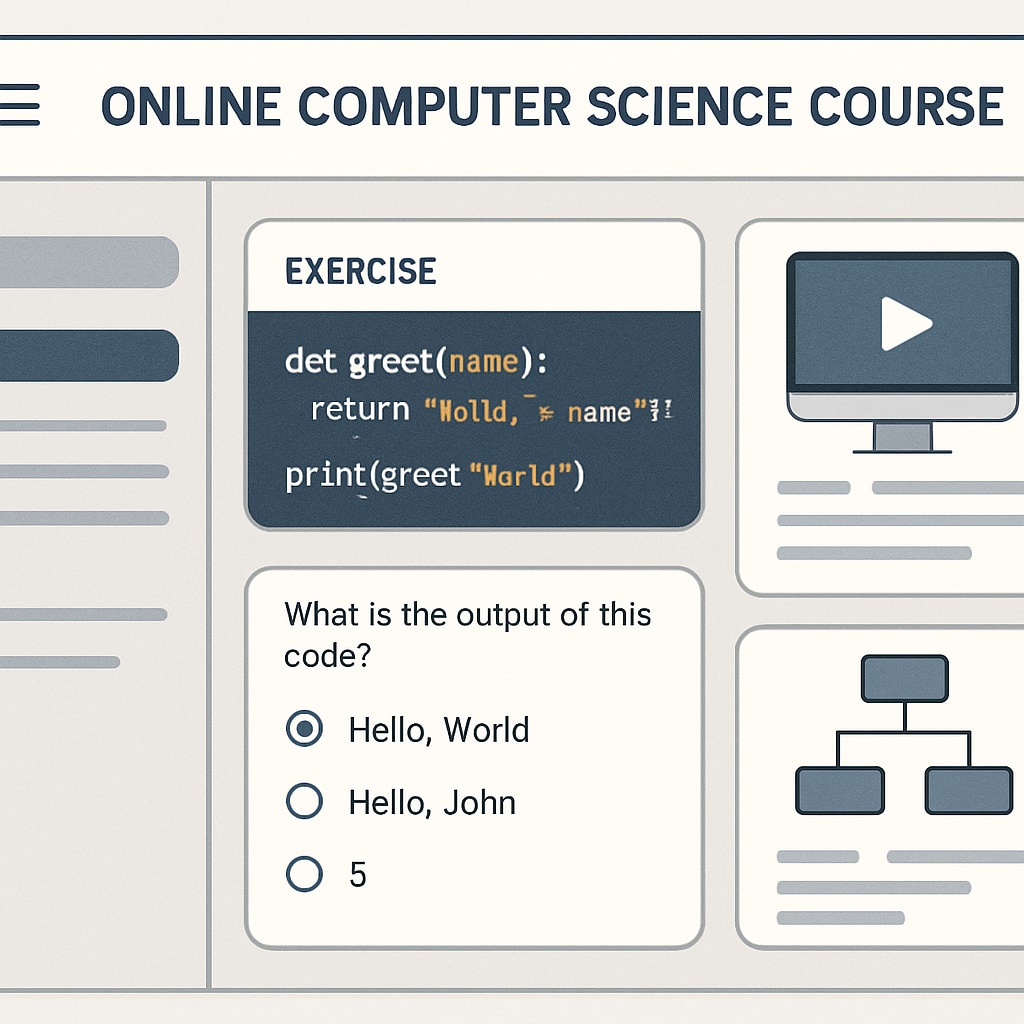Pursuing an online master’s degree in computer science can be a transformative step for K12 educators, offering a unique pathway to career advancement and innovative teaching strategies. As technology becomes increasingly integral to education, educators equipped with advanced computer science expertise are better positioned to prepare students for the future. This article examines the value of pursuing an online computer science master’s degree, compares the strengths of programs at the University of Colorado Boulder and the University of Illinois Urbana-Champaign, and explores practical ways to integrate computer science knowledge into K12 education.
The Growing Importance of Computer Science in K12 Education
In today’s digital age, computer science has become a cornerstone of modern education. From coding and robotics to data analysis, these skills are now essential for students entering the workforce. However, many K12 educators feel unprepared to teach these topics effectively due to limited training in computer science.
An online master’s degree in computer science provides a flexible opportunity for educators to bridge this gap. By acquiring advanced knowledge in algorithms, programming, and software development, teachers can design curricula that integrate these concepts into classrooms. As a result, students gain hands-on experience in problem-solving and computational thinking—skills that are critical in STEM fields.

Comparing Online Programs: University of Colorado Boulder vs. University of Illinois Urbana-Champaign
When considering an online computer science master’s degree, selecting the right program is crucial. Two leading options are the University of Colorado Boulder (CU Boulder) and the University of Illinois Urbana-Champaign (UIUC). While both programs offer rigorous academic training, they have distinct advantages.
- University of Colorado Boulder: This program emphasizes flexibility and affordability, making it ideal for working educators. With courses in artificial intelligence, cybersecurity, and machine learning, CU Boulder provides a comprehensive curriculum tailored to modern technological needs.
- University of Illinois Urbana-Champaign: Renowned for its research-driven approach, UIUC’s program is particularly well-suited for educators aiming to specialize in cutting-edge fields like data science or cloud computing. Its strong alumni network also offers excellent career development opportunities.
Both programs allow educators to learn at their own pace, balancing professional responsibilities with academic growth. Additionally, these institutions provide access to faculty expertise and a global network of peers, fostering an environment for collaborative learning.

Integrating Computer Science into K12 Classrooms
Once educators have gained advanced computer science knowledge, the next step is applying it to K12 classrooms. Here are some practical strategies:
- Project-Based Learning: Introduce real-world challenges that require students to develop software, analyze data, or create algorithms, fostering engagement and critical thinking.
- Cross-Disciplinary Applications: Combine computer science with subjects like math, science, and art to show students the interdisciplinary nature of technology.
- After-School Coding Clubs: Offer extracurricular programs where students can explore robotics, game development, or web design in a fun and supportive environment.
- Professional Development for Peers: Share insights with fellow teachers through workshops or collaborative planning, promoting a school-wide emphasis on computational skills.
By integrating these approaches, educators can make computer science accessible and engaging for students from diverse backgrounds, inspiring the next generation of innovators.
Career Advancement Opportunities for Educators
In addition to enhancing teaching practices, earning an online computer science master’s degree opens new career pathways for K12 educators. Graduates often transition into roles such as:
- Technology Integration Specialists: Guiding schools in adopting digital tools and curricula.
- Curriculum Designers: Developing computer science programs aligned with state standards.
- STEM Coordinators: Leading initiatives to promote science, technology, engineering, and math education.
- Educational Researchers: Exploring the impact of technology on learning outcomes.
Furthermore, the demand for computer science educators continues to grow, with many schools offering competitive salaries and leadership opportunities for qualified professionals.
As a result, pursuing an online master’s degree in computer science not only enhances teaching effectiveness but also positions educators for long-term career success.
In Conclusion: Online computer science master’s programs, such as those at CU Boulder and UIUC, provide K12 educators with the skills and credentials needed to thrive in today’s digital landscape. By integrating advanced knowledge into classrooms, educators can empower students to embrace technology and pursue exciting career paths. The journey toward earning this degree is an investment in both personal growth and the future of education.


